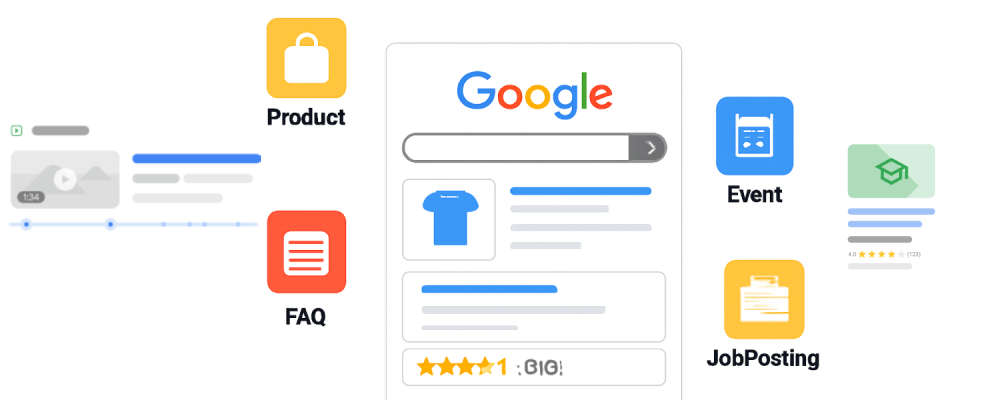1. First, What Is "Structured Data"?
Structured data is a way of helping Google understand what your page is about by adding specific code to your content.
For example:
- If you have a course page, you can add code that tells Google: "Hey, this is a course!"
- If it's a product, you can tell Google the price, reviews, etc.
This extra information allows Google to show rich results in search, like star ratings, FAQs, job salaries, or product details. It doesn't change your ranking but can make your listing look more attractive and informative in search results.
2. What Google Is Changing?
Google is now removing support for rich results from some types of structured data. This means it will no longer show enhanced listings for certain schema types.
- Not many people are using them
- They aren't adding much value anymore
- Google wants to keep the search results cleaner and simpler
3. Structured Data Types Being Removed:
Over the coming weeks and months, the following structured data types will no longer show rich results in Google Search:
- Book Actions (like "Buy this book" buttons)
- Course Info
- Claim Review (fact-check boxes)
- Estimated Salary (used in job listings)
- Learning Video
- Special Announcement (like COVID updates)
- Vehicle Listing (car ads)
Even if you continue to add this markup to your site, Google will ignore it for rich results. It won't appear visually enhanced in search results.
4. Does This Affect Ranking?
Not exactly, this change does not impact your page's search rankings.
Google has clearly stated that the removal of these rich results does not affect how pages are ranked. It only changes the visual appearance of your listing, not its position in the search results.
It just affects how results look, not where they appear.
5. Why It Matters for You:
If your site was using any of the removed 7 structured data types, you may notice that your listings in Google look more basic now. The additional information that used to be displayed—like ratings, fact-checks, or special highlights—will no longer appear.
- Look more plain now
- Might get fewer clicks (because less info is shown)
This could lead to fewer people clicking on your links, even though your rankings stay the same. That's because visually rich results tend to attract more clicks.
However, there's no need to remove the markup from your site. It won't harm anything. Also, other search engines like Bing or Yandex might still use it, so it's okay to leave it in place.
6. What You Should Do:
If your site isn't using the removed structured data types, there's nothing you need to change. If you are using them, don't worry. Your pages will still rank the same, even if the visual enhancements are no longer shown. Going forward, focus your efforts on structured data types that Google still supports.
- If you're not using any of these types — you're safe, no need to worry.
- If you are, just know it's not going to break your site or drop your rankings.
- Going forward, focus on the structured data that Google still supports — like Product, FAQ, How-To (where still allowed), Event, etc.
Continue optimizing your content with these supported schema types to improve how your content appears in search and to stay aligned with Google's latest updates.
